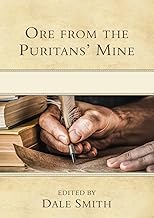I said in my first post in this series that I am not primarily interested in writing commentary lists for would-be scholars. The audience I have in mind are pastors and Bible teachers who are concerned about what these books mean and how their meaning can be brought to bear on contemporary living. The question I am concerned to answer is, “How will these people be most helped?” For this reason some will not agree with my recommendations. Most Christians cannot afford to purchase more than a few commentaries upon any book of Scripture they wish to study. Therefore, an expensive commentary, while desirable, would need to be essential, in the true sense of the word, to make it high on my list.
I should also say that the lists wil be colored somewhat (though not too much) by my premillennial and “Sovereigntist” theology (I believe God’s sovereign decision is always prior to man’s decision, but I am not a Dortian Calvinist).
The numbering is fairly subjective, but if a book makes the list it is recommended. As stated previously, commentaries are mostly identified by author and series:
The Best Commentaries on John’s Gospel:
1. Leon Morris – NICNT
The best work on this Gospel. His decisions are well based and theologically rounded-off, with lots to think upon.
2. Andreas Kostenberger – BECNT
A recent addition which shows great familiarity with recent discussions but presented in a remarkably pithy style.
3. R.C.H. Lenski
Marvelously full-orbed work, always with Divine inspiration in mind. A model of commentary writing. Huge, yet never a waste of time. Some Lutheran blemishes, but a mine for preachers.
4. D.A. Carson – Pillar
Carson has the knack of sounding sensible all the time. A better format would really help this book.
5. H.N. Ridderbos
Self-styled “Theological Commentary,” but a fine exposition. Communicates the ‘weight’ of the text, though not enough on the Prologue.
6. William Hendriksen – NT Commentary
A preacher’s commentary. It is a proclamation. Rigidly Reformed. Sometimes overly so, but edifying.
7. Frederic Godet
Goes his own way at times, but always backed by exegesis and theology. A fruitful thinker.
8. Brooke Foss Westcott
Famous 19th century classic. Conservative while painstaking. A little difficult to use.
9. John Calvin
Calvin is always worth consulting.
10. F.F. Bruce
Short, clear, terse comments which invariably aid the reader, even if he has already read larger works.
Other noteworthy works are those by Milne (edged out by Bruce), Laney (a little thin), Keener (too crammed) and Barrett (great exegesis but liberal). One would also be helped by Blomberg’s The Historical Reliability of John’s Gospel. Though not essential I would rate Matthew Henry high in the Gospels, and George Hutcheson’s work devout and solid. Beasley-Murray (WBC) and Lincoln (BNTC) would be good if they could be trusted not to stray into liberal territory quite frequently.
Next time, Romans.



7 comments On Personal Thoughts about Commentaries (2): JOHN
First blog I read after wakeup from sleep today!
—————————-
#1 Top Search Engine – Google
Hi Paul,
Interesting that you put Morris first and above Carson and Kostenberger above Carson. I understand that Morris has good preacheable material especially his footnotes which are a goldmine. But Carson’s reasoning is consistently exegetical.
Köstenberger has been pulled from the series because he plagiarised Carson but thankfully he was given a chance to rework his commentary. Normally when you read Carson and Morris you would have very little to glean from Köstenberger.
My list on John would obviously look very different from yours but again our commentary preferences are subjective.
Chita,
I place Morris above Carson because he is an excellent exegete, but he gives you more in his digressions, word studies (which have theological insight), etc. I did not realize Kostenberger plagiarized Carson, although I’m not too surprised given Carson’s influence on him. He is pithy yet accurate; attributes which place him above Carson for me. While I agree with your comment about him being somewhat superfluous after reading Carson and Morris, I think much the same could be said if one switched out Carson with Kostenberger; Carson would hardly be needed. Kostenberger is subsequent to Carson and is easier to get through than his mentor.
While Carson is excellent, I struggle a bit with his method of considering this then that view. That said, it is a great shame that he stopped writing commentaries as both his John and Matthew are very good.
Thanks Paul, I like your reasoning and realised that we are not too far apart. Indeed Carson can daunting as he moves from one view to the other before he gets to his own. I didn’t know that Carson stopped writing commentaries! I thought he was working on epistles of John, Galatians, Hebrews and Revelation. Something two Pillar and the others for NIGTC and BECNT?
Thanks Paul I give your reasoning 5 out of 5.
You can add the Epistles of John to the list too, but the grasshoppers have been all there is to hear for years now
Dr. Paul, what is your oppinion on Edward Klink”s commnetary ? (ZECNT).
Right now my choice for John is between Carson and Klink. Problem is, I couldn’t find much about Klink’s commentary, so I wonder if you checked it out or at least know the author. Thank you
No I haven’t read Klink. I’m sure it’s good. Morris and Ridderbos are a good combo. Carson is good